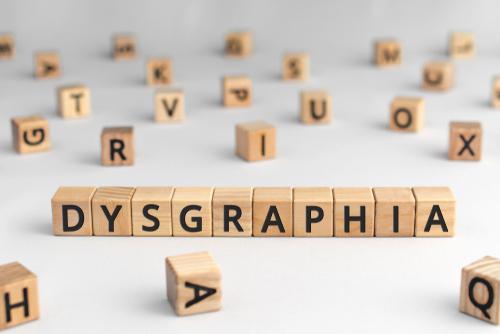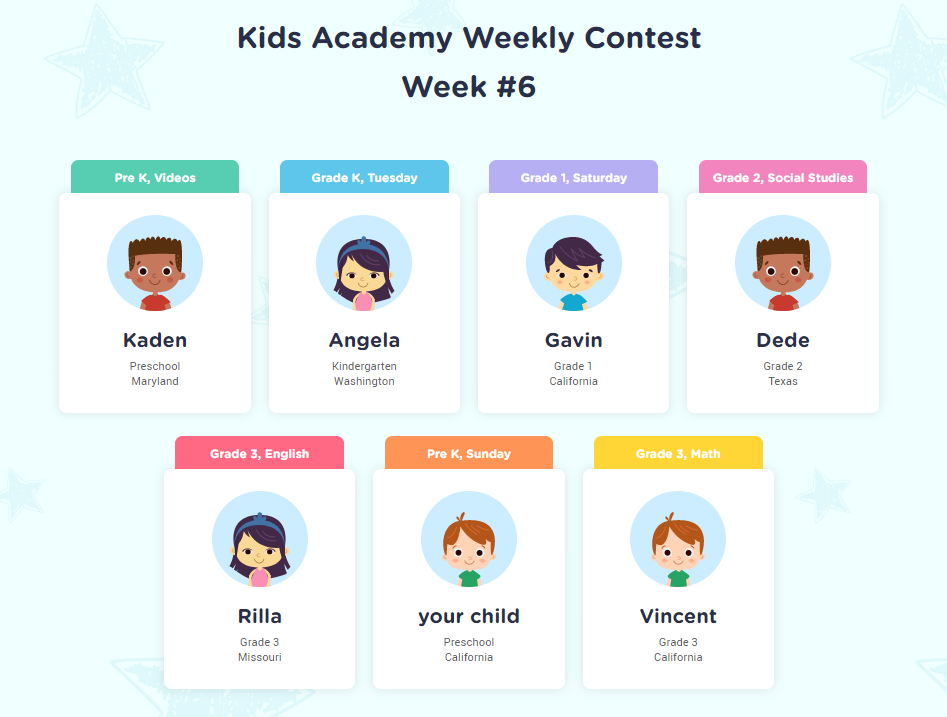Sorting skills Easy Worksheets for Ages 3-5
5 filtered results
-
From - To
Welcome to our "Sorting Skills Easy Worksheets" page, designed specifically for children aged 3-5! Our engaging worksheets aim to develop sorting skills through fun, interactive activities. Young learners will sort objects by color, shape, size, and category, enhancing their cognitive abilities and promoting critical thinking. Each worksheet is crafted to captivate children's attention and encourage independent learning, while also providing opportunities for parents and educators to support their development. Perfect for at-home learning, preschools, or playgroups, these resources make sorting enjoyable and educational. Start exploring our collection today to help your little ones build a strong foundation in sorting skills!
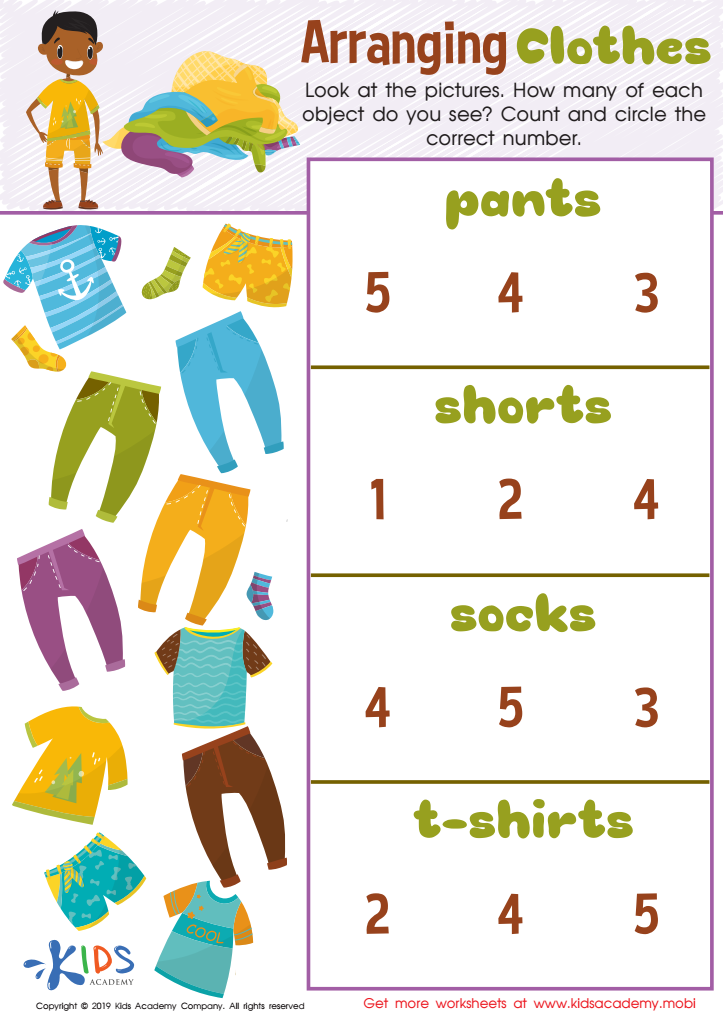

Arranging Clothes Worksheet
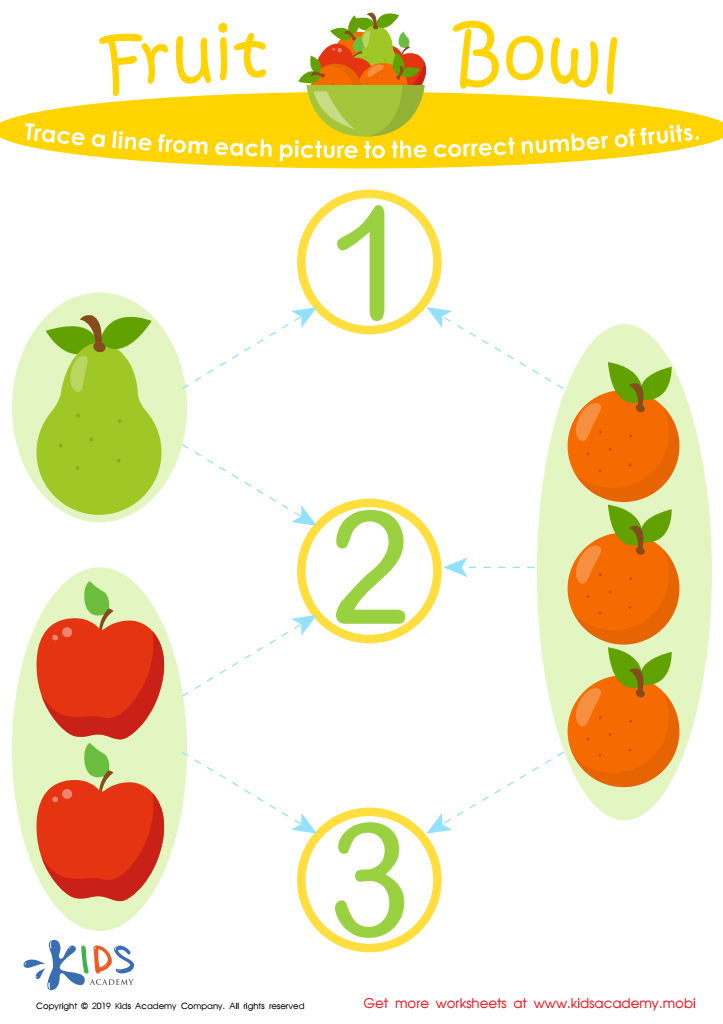

Fruit Bowl Worksheet
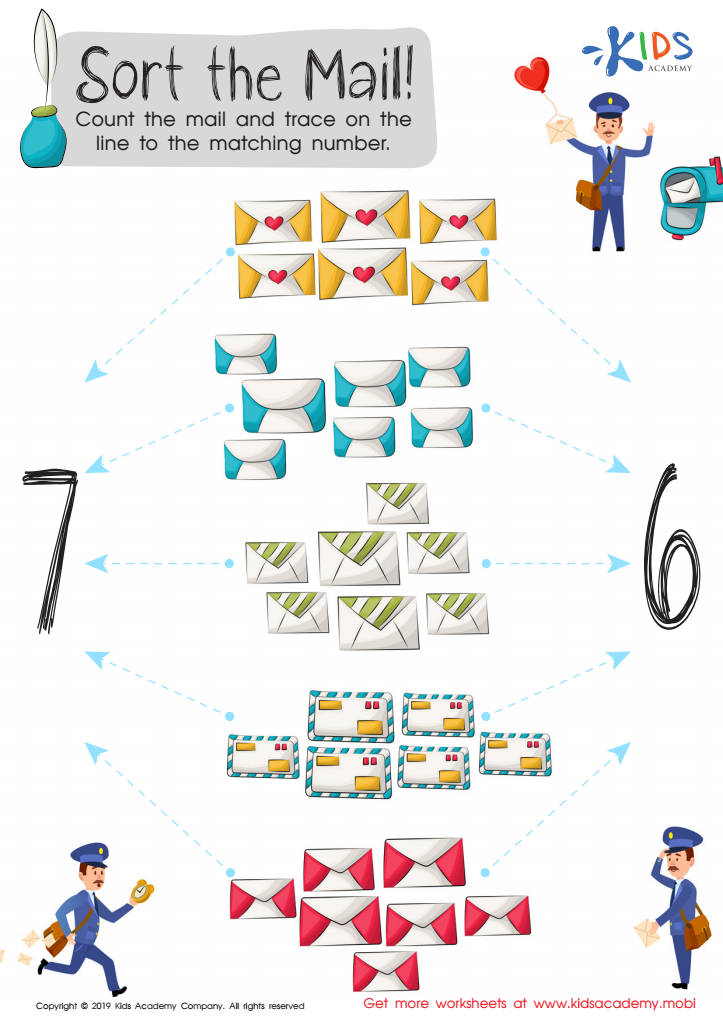

Sort the Mail Worksheet
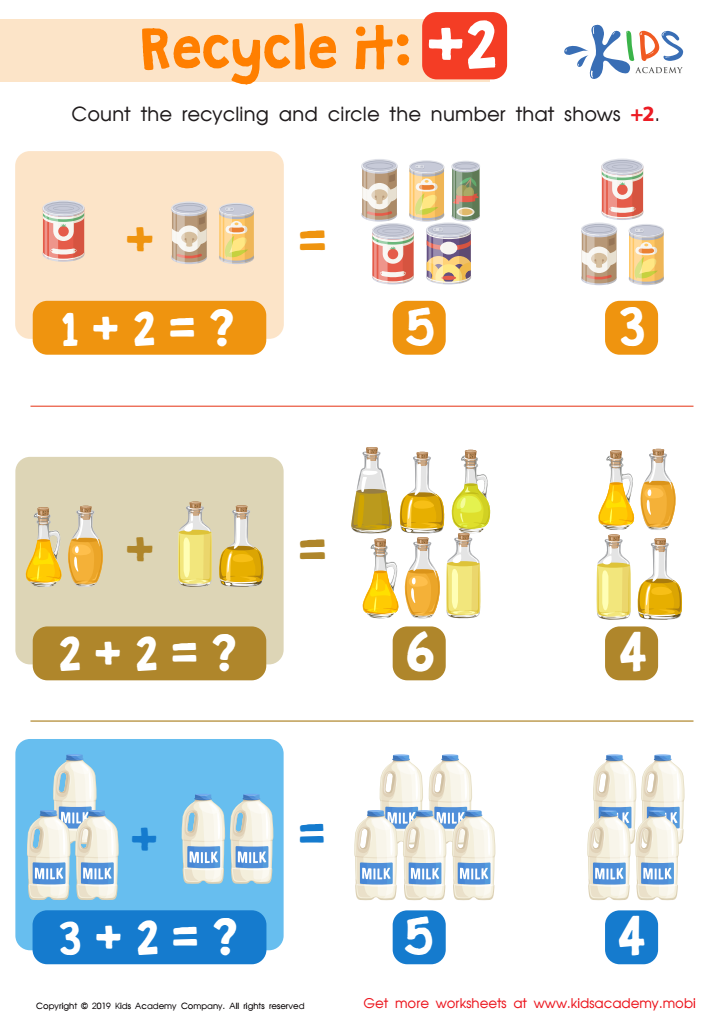

Recycle It: +2 Worksheet
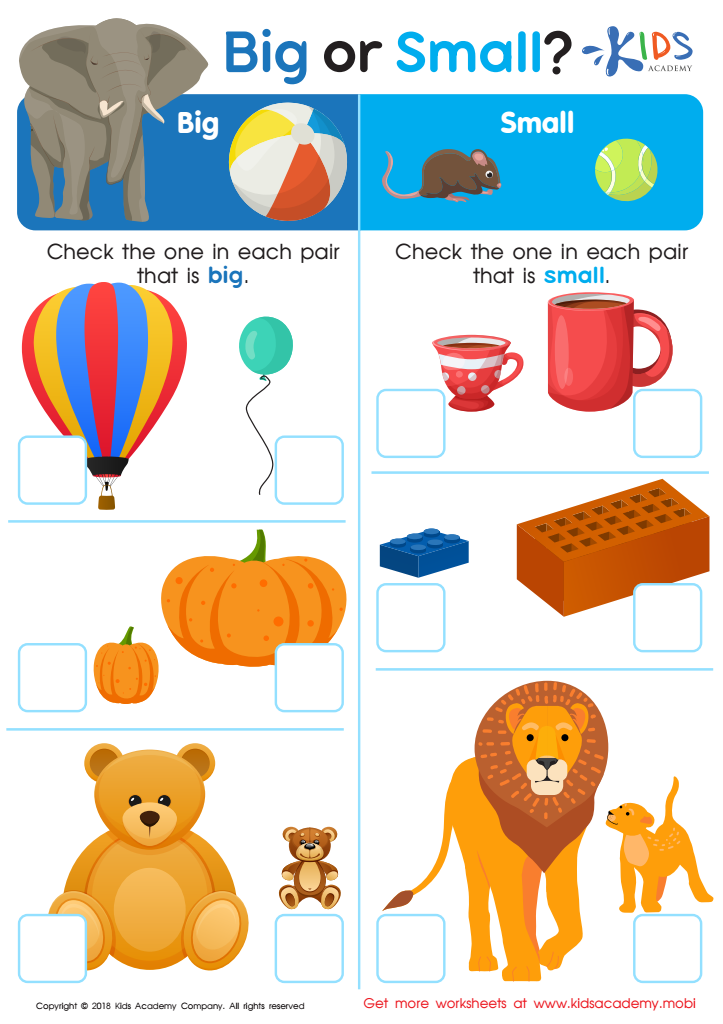

Big or Small? Worksheet
Sorting skills are fundamental for young children ages 3-5 and play a critical role in their cognitive and social development. When parents and teachers foster sorting skills, they help children categorize objects by attributes such as color, shape, size, or texture. This foundational skill enhances their ability to recognize patterns, which is vital for later mathematical understanding. For example, sorting lays the groundwork for concepts such as addition and subtraction, where children must learn to group and separate quantities.
Moreover, sorting activities promote critical thinking and problem-solving skills. As children determine how to classify items, they exercise their judgment and decision-making abilities. Sorting also encourages language development, as children learn new vocabulary to describe their observations and classifications, enhancing expressive communication.
Additionally, sorting fosters independence and boosts self-esteem as children engage in hands-on activities, allowing them to take pride in their accomplishments. Lastly, in learning to follow directions and work collaboratively in group sorting tasks, young children develop essential social skills.
Incorporating sorting activities into daily routines can significantly enrich young children’s learning experiences, providing essential life skills that will benefit them well beyond their early years. Hence, appreciating the importance of sorting skills can make a lasting impact on childhood growth and development.
 Assign to My Students
Assign to My Students





.jpg)
